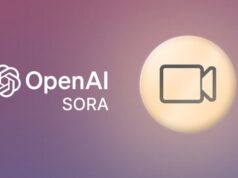Do you love listening to songs from your favorite singers, but you wish there were more of them?
Or maybe you want to make your own songs, but you don’t know how to do it? Well, thanks to computers and artificial intelligence (AI), you can now make songs like your favorite singers, without having to write, record, or sing anything yourself.
In this article, we will learn how computers can make songs, what are some of the best examples, and what are the good and bad things about using them.
What are AI Song Generators?
AI song generators are computer programs that use AI to make songs from nothing. They can make different types of songs: symbolic and raw audio songs.
Symbolic song generators work with musical notes and symbols, like MIDI files, that show the sound, length, and instrument of each note.
Symbolic song generators are easy to train and change, but they cannot make the sounds and details of human voices and instruments.
Raw audio song generators work with sound waves, like MP3 files, that show the loudness and pitch of each sound. Raw audio song generators are more real and expressive, but they need more data and computer power to train and make.
Jukebox: A Great Raw Audio Song Generator
One of the best and most popular raw audio song generators is Jukebox, a neural network made by OpenAI.
Jukebox can make songs in many styles and genres, including simple singing, as raw audio samples.
Jukebox takes as input the style, singer, and words of the song you want, and gives a new song sample made from nothing.
Jukebox can also change existing songs with different voices or instruments, finish incomplete songs with new parts, or make fun songs by mixing different styles and singers.
Jukebox is trained on a big dataset of over 1.2 million songs from different sources, covering 6,000 different singers and 600 genres.
Jukebox uses a model that has three levels: the top level makes a global vector that shows the main features of the song, like style and mood;
the middle level makes a sequence of local vectors that show the shape and harmony of the song, like chords and tunes; and
the bottom level makes the raw audio samples that show the sound and movement of the song, like voices and instruments.
Good and Bad Things About AI Song Generators Based on Singer Styles
Jukebox is an amazing example of how AI can make songs based on singer styles, but it is not perfect. Jukebox still has some problems and challenges, such as:
1. The quality of the made samples is not always good or real. Some samples may sound noisy, broken, or wrong.
2. The variety of the made samples is not always high or new. Some samples may sound too much like existing songs or singers.
3. The meaning of the made samples is not always clear or important. Some samples may have no structure, logic, or emotion.
4. The speed of the making process is not always fast or easy. Some samples may take a long time to make or need a lot of computer resources.
Despite these problems, Jukebox is a wonderful achievement that shows the possibility of AI to make songs based on singer styles.
Jukebox is not meant to take the place of human singers or songwriters, but rather to help them and give them new tools and options.
Jukebox is also not the only AI song generator based on singer styles.
There are other examples, such as Voicify, which lets users make AI covers using many AI voice models from other users; Loudly, which lets users make AI tracks using different rules and settings; AI Tool Mall, which gives a list of 10 best AI music generators in 2023; and FineShare Singify, which lets users make AI covers with their favorite voices.
AI song generators based on singer styles are an exciting and new area of study and use that will keep growing and getting better in the future.
AI song generators can offer new ways to discover, try out, and enjoy music for both makers and listeners alike.






